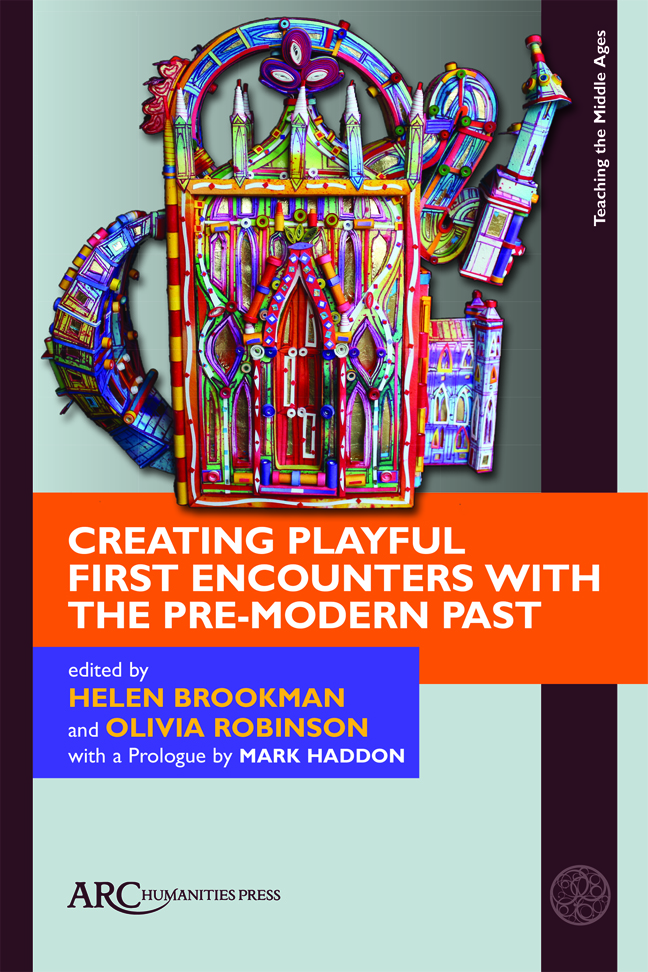Introduction
Published online by Cambridge University Press: 17 February 2024
Summary
OUR PROLOGUE, MARK Haddon's “Juniper and Mare's Cheese,” and the novel it reflects upon, The Porpoise (2019), provide a fitting point of departure for this collection on fostering creative engagements with the medieval and early modern past and its own literary and artistic products, especially among those new to their study. With disarming modesty for such a decorated writer, Haddon describes his own “newcomer” experience as a novelist turning to historical fiction despite the “quiet shame” of not perceiving oneself to be “very good at history.” Haddon's description of his own experience in approaching historical material for a novel echoes that of many of the students, creators, and participants appearing in our chapters: “gingerly … from downwind through the long grass.” The particular story Haddon sets out to retell—that of Apollonius, or Pericles, of Tyre—presents further problems to a modern author, particularly in its gender and sexual politics and the treatment of themes of rape and incest. It is a story that was retold multiple times in the medieval and early modern periods: in the Old English prose Apollonius of Tyre; in Gower's Confessio Amantis, and in the play largely attributed to Shakespeare, Pericles, Prince of Tyre. Casting aside the “unhelpful reverence” of his childhood encounters with history, Haddon's approach is driven by “a writer's instinct for convincing detail,” for the vivid, visceral “stuff” of the past—and it doesn't matter in the telling whether this is “manufactured or borrowed from the record” or merely “plausibly hypothetical.” In writing about specific present- day cultures outside one's own experience, the author needs to know and recreate “what your characters might keep above the fireplace,” where there are “seven million ways of getting [these] wrong.” In historical fiction—“at some distance from a combustible present”—there is more license to “play fast and loose.”
To add an illustrative example to those he cites in our Prologue, we can visit his city of Tarsus, the people of which, starving after four months with no rain, inadvertently admit the Black Death to the city with a grain shipment. When Pericles (recently miraculously transformed from his modern counterpart, Darius) arrives at the stricken city on board the Porpoise, he and his crew share “Bisket and bread … Lemons and hunks of Holland cheese … watered Rhenish, salt beef and apricots” that are rapidly consumed by the starving people.
- Type
- Chapter
- Information
- Publisher: Amsterdam University PressPrint publication year: 2023



